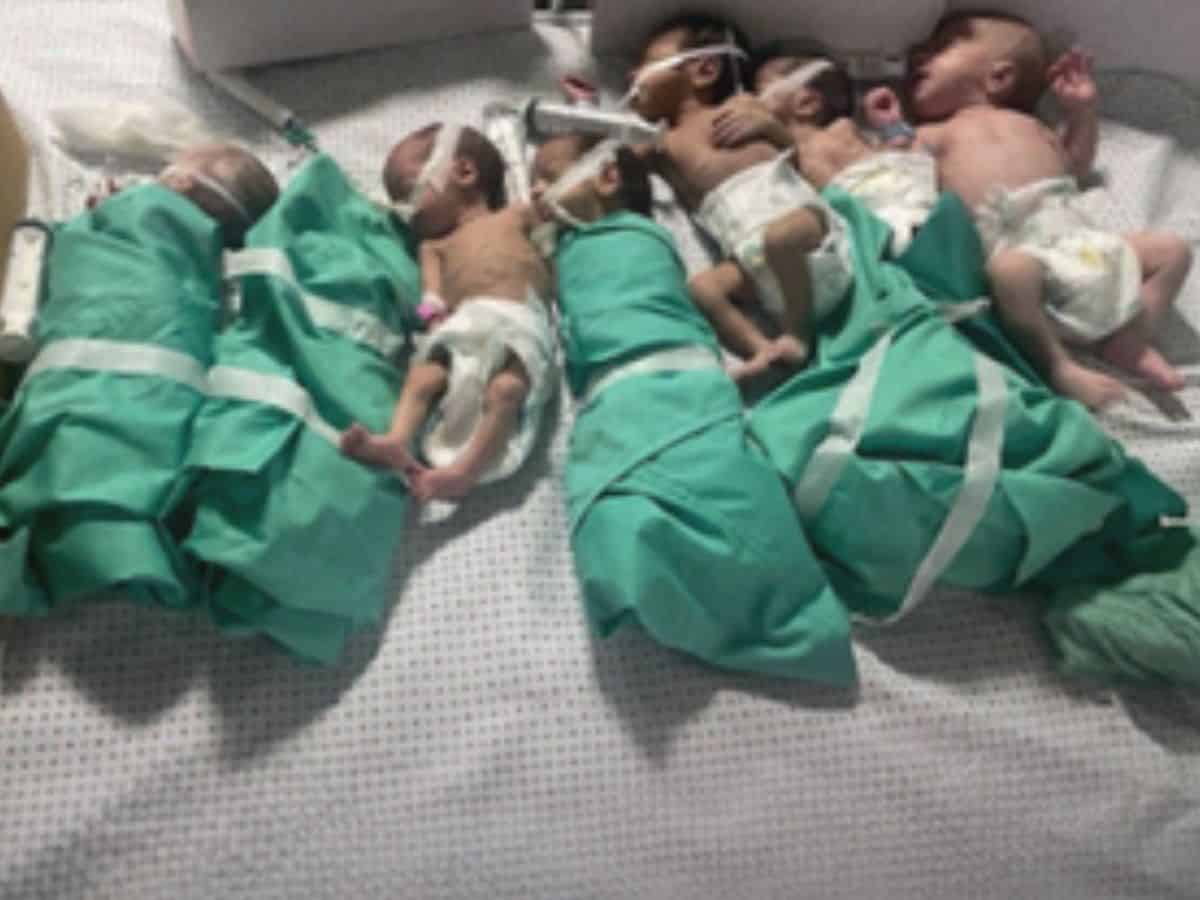
New Delhi: Healthcare system in Gaza is on “its knees” and on the verge of “near collapse”, said the medical community while condemning attacks on hospitals, patients and healthcare workers in the Occupied Palestinian Territory by the Israeli military in response to the Hamas militants’ terror attack on Israel on October 7 that left 1,200 dead and 240 — from babies to octogenarians — taken hostage by Hamas.
In response, Israel launched a three-pronged attack — via the air, imposing a siege and launching a ground invasion in Gaza, home to 2.3 million people. This included religious places, schools, relief camps and importantly hospitals and medical personnel — specifically protected under International Humanitarian Law (IHL).
Even as Israel invited the ire of global leaders, organisations, with scores of people worldwide protesting, it maintains that Hamas is hiding weapons in tunnels under hospitals — a charge denied by Hamas.
Since October 7, the WHO has verified more than 250 attacks on healthcare in Gaza — hospitals, clinics, ambulances, and patients — and the West Bank, while there had been 25 attacks on healthcare in Israel, said World Health Organization (WHO) Director-General Dr Tedros Adhanom Ghebreyesus, while speaking at the Emergency meeting of the UN Security Council last week.
“Half of the Gaza Strip’s 36 hospitals and two-thirds of its primary health care centres are not functioning at all. Those that are functioning are operating way beyond their capacities,” he said.
Besides the WHO, Doctors Without Borders/Medecins Sans Frontieres (MSF), International Red Cross and Red Crescent Movement and other major UN organisations have unequivocally condemned the attacks on children, hospitals, patients and healthcare and have called for an immediate ceasefire.
The global organisations reported that even as the casualties are increasing rampantly, food, water and critical medicines and health supplies are running out in Gaza. Blood banks only have a week of supply left.
“The health system is on its knees…and the health system is near collapse,” said the WHO chief while calling for “attacks on healthcare to stop, and for patients, health facilities, health infrastructure and health workers — as well as aid workers — to be protected”.
He added that there are rising cases of respiratory and skin infections, and acute watery diarrhoea due to lack of sanitation, which could increase the risk of transmission.
Citing data from the Gazan Ministry of Health, UNRWA and WHO, he added that there had been 71,224 recorded cases of acute respiratory infections, 44,202 cases of diarrhoea (22,554 in children under five), 808 cases of chickenpox, and more than 14,195 skin rashes, 10,952 cases of scabies and lice.
Laila Baker, Regional Director for Arab States at the UN Population Fund (UNFPA), termed the situation as “catastrophic” for women and girls in Gaza.
“At the moment, some 50,000 Palestinian pregnant women are in Gaza, every day approximately 180 women give birth there (…) and are facing appalling conditions during those deliveries,” she said, with the situation most critical for the women facing obstetric complications.
Their lives and the lives of their unborn children are at risk, due to severely limited access to healthcare and emergency obstetric care, Baker added, noting that with supplies running low, women are forced to undergo caesarean sections without anaesthesia, and as military strikes land near hospitals.
“We are being killed here, please do something,” said one of MSF’s nurses from the basement of Al-Shifa Hospital, where he and his family were sheltering from the incessant bombing in a text message to his seniors.
“We call on the Israeli government to cease this unrelenting assault on Gaza’s health system. Our staff and patients are inside Al-Shifa Hospital, where the heavy bombing has not stopped,” said Ann Taylor, MSF’s Head of Mission in Palestine, in a statement.
The International Red Cross and Red Crescent Movement, the world’s largest humanitarian network, have also uniformly condemned the hospital blast.
“No patient should be killed in a hospital bed,” the International Committee of the Red Cross posted on X.
“No doctors should lose their lives while trying to save others. Hospitals must be protected under international humanitarian law.”
“Even war has rules!” Francesco Rocca, the president of the International Federation of Red Cross and Red Crescent Societies posted on X.
“Patients and people seeking refuge were killed. Hospitals must be sanctuaries for all.”
The Palestine Red Crescent Society said in a statement on X that it is “appalled and horrified” by the hospital explosion and that it has repeatedly called on the international community to pressure Israel into rescinding evacuation orders for hospitals.
“This war crime comes despite frequent declarations and pleas by these hospitals that these orders are impossible to implement, and that they constitute a death sentence for patients,” the statement said.
“The silence of the international community only emboldens such acts and increases the danger to the lives of innocent civilians.”



